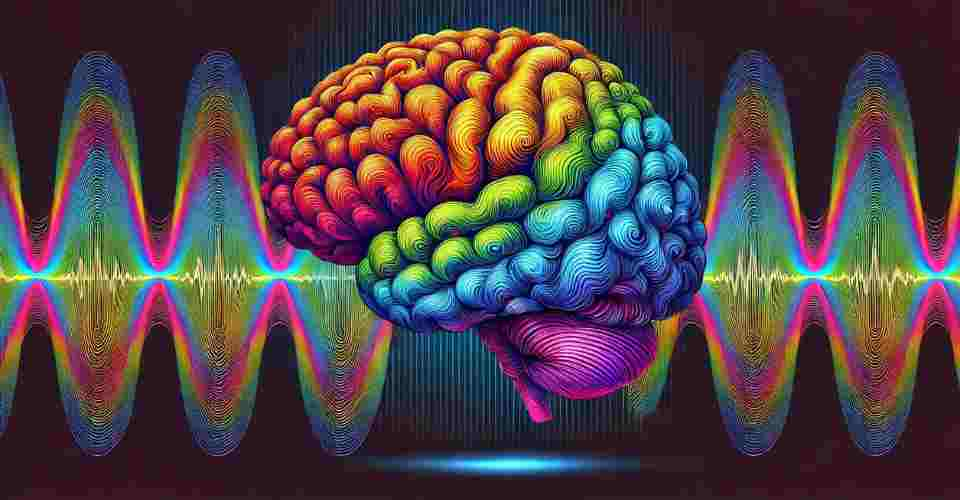Creativity and Brain Response to Oddball Stimuli
In a Brain and Cognition published study that was ground breaking, the authors found that creativity was related to lower brain activations in response to unusual or ‘oddball’ stimuli. As such, these findings imply that creative people may handle surprising information in a different manner from others hence explaining their divergent thinking patterns and wider knowledge.
Atypical Salience Processing
This contrasts with the traditional view of creativity as having a broad attentional focus on irrelevant details which is often attributed to lack of cognitive control. However, according to this new research, salience processing for creative individuals deviates from typical outcomes. It is through such saliency processing that important information becomes prioritized by the brain guiding our attention and behavior. Thus the researchers aimed to uncover one key mechanism underlying unique attentional patterns seen among creative people.
Insights from the Study Author
“Ever wonder why so many creative types tend to spot things others fail to notice? This has motivated me on whether creative people’s sensory modality might be differently organized,” said Madeleine E. Gross, Ph.D., assistant project scientist at the Memory Emotion Thought Awareness (META) lab at University of California Santa Barbara.
Research Methodology
The researchers had two studies they did in order to examine this idea; they include: The research carried out two studies based on this supposition; these were: brain responses to surprising information revealed by EEGs and how rewards are used by creatives in daily lives.
First Study: Creativity and Brainwaves
The first study involved 51 participants at UC Santa Barbara who took part in an experiment called Incomplete figures task where they were given ten minutes within which they were expected draw something using only simple lines as guides. Participants then wore an electroencephalogram (EEG) cap (to measure electrical activity over scalp representing their brain functions) while performing an oddball task. For the oddball stimuli, the participants were shown a series of images that were predominantly rocks, with occasional apples. When an apple appeared, it was accompanied by a sound. The researchers measured the brainwave called the P300, reflecting how surprising or significant a stimulus is.
The EEG data revealed that creative people had significantly reduced P300 response to the oddball stimuli, suggesting that their brains did not find these surprising stimuli as noteworthy as those of less creative individuals. Gross told PsyPost: “Most of us simply can’t help but zero in on what’s ‘obviously’ salient when trying to solve a creative problem, which makes it difficult for us to step outside our normal way of thinking and notice unusual things in different spaces.” She also added: “Our study found that creative individuals do not perceive unusual information as odd; they process it similarly to typical information.”
Second Study: Creativity and Reward Processing
In Study 2, 200 participants completed Alternate Uses Task (AUT) where they had to generate as many novel uses for an everyday object such as brick or chair within 10 minutes. Participants also rated their liking (enjoyment), spontaneous positive thoughts regarding availability (“wanting”), and how often they thought about them.
According to results from this research, creative people generally want more activities they can engage than non-creative ones. However unlike their less imaginative counterparts whose motivation depended on enjoyment (liking), this was not the case among creatives given that their motivation was less tied to liking. In such a way these results reveal that creative persons may attribute motivational significance across diverse range of activities and not only enjoyable ones.
Unique Salience Attribution
“This implies that, creative people being special human beings, they attend to odd things in their environment,” Gross said. It suggests that this fact might point to the possibility of creative peoples’ having a peculiar kind of salience attribution and therefore making them pay attention to different things and get inspired by different things.
Future Directions
The study has its limitations despite the useful insights it provides; for example, it considers only a certain type of creativity in an artificial setting. Future research should test these findings across various forms of creativity and diverse populations.
“Long term goals are many! Owing to our results we have devised the theoretical framework which explains why creative mindsets tend towards information priority differences” he explained. “Nevertheless, so far, it is correlational evidence. We are interested in finding out whether we can influence processes related to salience for the purpose of enhancing creativity.”
Potential future directions include investigating if aesthetic experiences or cannabis use might promote artistic forms of creativity through salient processing.
Conclusion
Madeleine E. Gross along with James C. Elliott and Jonathan W. Schooler wrote a paper titled “Why creatives don’t find the oddball odd: Neural and psychological evidence for atypical salience processing.” It opens up new perspectives on how creativity occurs in people’s brains both neurobiologically and psychologically, as well as possible ways for promoting this thinking style through targeted interventions




























